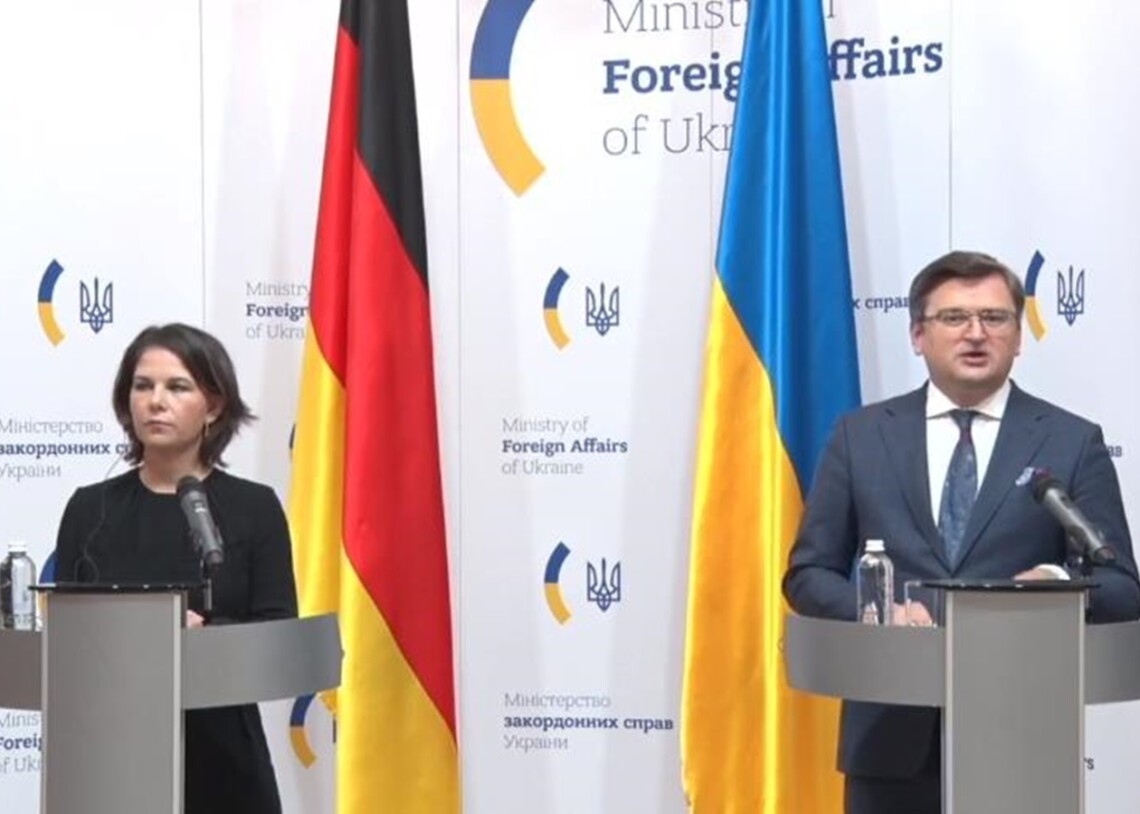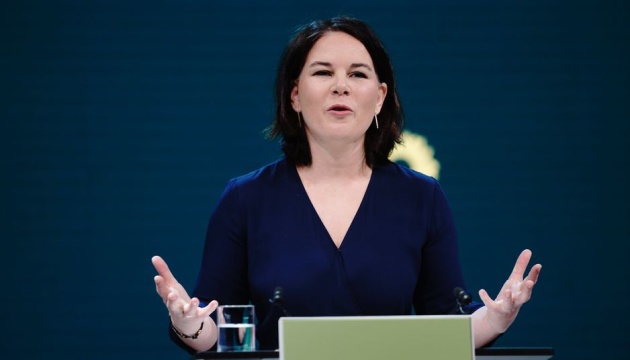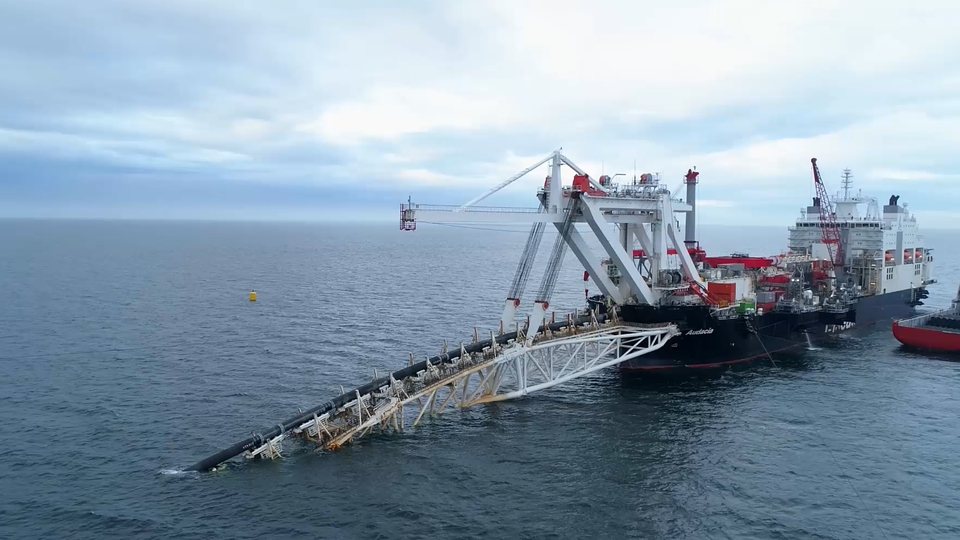This is Part 2, to read Part 1, please click here.
An itemized list of Ukraine’s latest request for German security assistance has found its way into two major German papers (Süddeutsche Zeitung, Der Spiegel, February 5). The Ukrainian embassy and the military attaché’s office in Berlin addressed this request to the German Ministry of Foreign Affairs and the Ministry of Defense, respectively. Citing the “very tense situation and threats of Russian aggression,” Ukraine seeks “undelayed assistance and urgent procurement” of: modern medium-range air-defense systems and missile-defense systems, anti-drone rifles, automatic cannons, ammunition for the above-mentioned weapons, night-vision devices, surveillance cameras, electronic tracking systems, as well as 100,000 helmets and an equal number of bullet-proof vests for Ukrainian territorial defense volunteers (the quantities requested have not leaked out except for the helmets and vests).
Ukraine sent its updated requests for lethal and nonlethal military equipment to Germany and some other North Atlantic Treaty Organization (NATO) and European Union countries on February 1. According to Defense Minister Oleksiy Reznikov, the procurement should enable Ukrainian forces to raise the price of a Russian aggression, thus reducing its likelihood or helping to prevent it (Ukrinform, February 3).
Berlin is certain to turn down all lethal and most non-lethal items for ideological reasons peculiar to Germany. However, Berlin would find it difficult to meet some key Ukrainian needs even if it had wished to meet them. Ukraine‘s request has inadvertently brought to light some of the Bundeswehr’s own equipment deficiencies. According to domestic press accounts, the German army is itself short of modern air-defense systems and types of ammunition that Ukraine is requesting. Ukraine had earlier expressed interest in procuring German corvettes, but the German navy itself is in need of such vessels. From Ukraine’s current request, the German government would only provide helmets and bullet-proof vests (100,000 of each—see above), but the defense ministry’s inventory search determined that it could only come up with 5,000 helmets and no vests (Die Welt, February 2, 5; see Part One in EDM, February 3).
Exploiting its veto right in the framework of NATO’s Support and Procurement Agency, Berlin blocked Ukraine’s procurement of 90 anti-sniper rifles from the United States (at a time when Russian and proxy forces were using snipers to kill Ukrainian soldiers in breach of the armistice) (Ukrinform, February 3).
On a bilateral level, Germany is currently blocking Estonia’s donation of nine medium-caliber howitzers to Ukraine. Those Soviet-legacy pieces passed from the German Democratic Republic to the reunified Germany to Finland to Estonia, necessitating German authorization for any re-export. Germany is grasping at the legal opportunity to block this Estonian donation to Ukraine. The Social-Democrat Chancellor, Olaf Scholz, is stonewalling (see EDM, February 3), while the technical decision belongs to the Ministry of Economics, led by the pacifist Greens. According to Germany’s new Defense Minister Christine Lambrecht (Social-Democrat), Ukraine cannot be allowed to receive even these Soviet-legacy pieces, because they are not only lethal but also “not defensive” (Funke Press Group, February 6).
According to then-chancellor Angela Merkel’s top foreign policy advisor (2005–2017), Christoph Heusgen, in a retrospective interview (Der Tagesspiegel, February 7, 2022), “the decision to not supply any arms to Ukraine was made following the Minsk agreement, in order to calm down the conflict. This worked out for a while.” Heusgen, now incoming chairperson of the annual Munich Security Conference, cautiously suggests that “Germany should consider how to strengthen Ukraine’s defensive capacity.”
The government in Berlin is not indifferent to arms transfers from NATO member countries to Ukraine. The German government has criticized Ukraine’s use of Turkish-made armed drones (German politicians are currently immersed in a wrenching introspection about the legitimacy of and self-imposed limitations to the use of combat drones by the Bundeswehr). Last month, a British transport plane carrying anti-armor missiles to Ukraine bypassed German airspace, flying a longer route instead, out of concern that German authorities might block or delay the overflight authorization (see EDM, February 3).
Germany is ranked as the fourth-largest exporter of military equipment worldwide, with just under €10 billion ($11.4 billion) worth of exports in 2021 (Süddeutsche Zeitung, February 4, 2022).
Decisions can be driven by political, commercial or humanitarian-interventionist considerations. Thus, Germany has in recent years delivered weapons in the Middle East’s conflict theaters: submarines to Israel, frigates and air-defense systems to Egypt, planes to Saudi Arabia during the Yemen war, or anti-armor missile systems to the Kurdish Peshmerga against the Islamic State in Iraq (anti-terrorism and humanitarian intervention). The new coalition government in Berlin, more prone to leftist-pacifist moralizing than its predecessor, plans to tighten the restrictions on German exports of military equipment.
Read More:
- Nazi dreams of an enslaved Ukraine: the blind spot of Germany’s historical memory – Timothy Snyder
- Why does Germany refuse to export arms to Ukraine?
- “Germany bears a special responsibility for European security”: Ukrainian Jews appeal to Chancellor Olaf Scholz
- 73 East Europe experts call on Germany to “fundamentally correct” Russia policy
- Germany blocks Ukraine’s arms purchase from NATO as unofficial arms embargo on Ukraine continues
- How German companies violated sanctions to bring Dutch sea platform to luxury marina in Crimea
- “A second Budapest memorandum”: experts on the US-Germany Nord Stream 2 deal
- From information laundering to influence: Russia’s footprints in Germany
- Germany strengthens Russia’s insolence with new economic agreement
- Putin regime has set up not one but five ‘fifth columns’ in Germany, Eidman says
- Putin actively using Cold War Stasi agent network in Germany, Reitschuster says
- Crimean factory gets generators from German company in breach of EU sanctions – media
- Germany, Norway deliver ilmenite ore to occupied Crimea in sanctions breach








